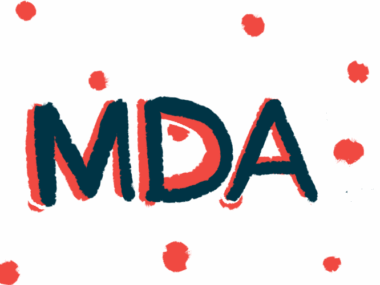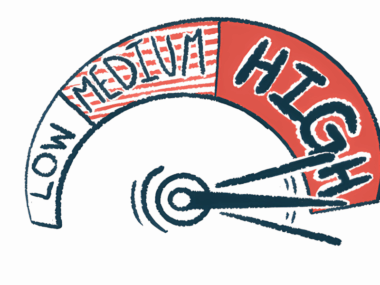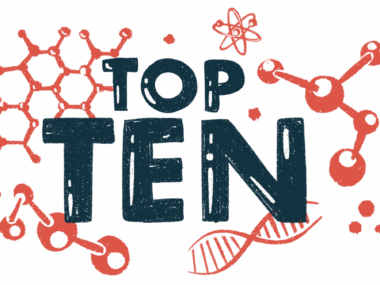Subset of NK immune cells may promote MG autoimmunity: Study
Cells linked to greater activation of antibody-producing B-cells
Written by |

A subset of immune cells called natural killer (NK) cells are elevated in the blood of myasthenia gravis (MG) patients with active disease symptoms, where they may promote an autoimmune response, according to a recent study.
These cells, which house the CXCR5 protein on their surface, was linked to high levels of disease-driving antibodies and greater activation of antibody-producing B-cells, whereas their CXCR5-negative counterparts appeared to be able to combat autoimmunity.
The identification of these important NK subsets “might be of significance to research exploring potential intervening targets for humoral [immune] response in both vaccination and autoimmune diseases,” the researchers wrote in “Circulating CXCR5+natural killer cells are expanded inpatients with myasthenia gravis,” which was published in Clinical and Translational Immunology.
In MG, muscle weakness arises from the immune system producing harmful self-reactive antibodies that attack proteins needed for nerve-muscle communication. While these antibodies are mostly produced by B-cells, different immune cell types may play a role in promoting or sustaining autoimmunity.
NK cells are a large, diverse family of white blood cells that are traditionally known to kill off infected and malignant (cancer) cells. More recently, it’s been found that NK cells can modulate the activity of other immune cells, including B-cells, which could contribute to autoimmunity.
Researchers previously found that healthy NK cells could ease disease symptoms when transplanted into a rat model of MG. The transplant also led to reductions in B-cells and T-folicular helper cells (Tfh), a type of immune cell that help B-cells with antibody production. Only NK cells that were negative for CXCR5, a protein involved in immune cell migration, were effective at reducing Tfh.
While CXCR5-negative NK cells could protect against autoimmunity, the team found evidence that CXCR5-positive NK subsets might promote certain immune responses.
The researchers examined circulating NK cell populations from the blood of 33 patients and compared them with those in 19 healthy people to learn more about how various NK cell subtypes might contribute to autoimmunity. In the MG group, 20 were considered to have exacerbated/aggravated MG, meaning they had acute disease symptoms, whereas 13 were in remission.
Sex and age were similar across the groups, although active MG patients had more severe muscle weakness and were using immunosuppressants less than those in remission.
How NK cells contribute to MG autoimmune responses
Patients with exacerbated MG had a reduced number of total NK cells in their bloodstream relative to those in remission and healthy people. The profile of NK cell subsets also tended to differ between the groups. This NK cell impairment with aggravated disease generally “returned to near normal” once the patients entered in remission, the researchers said.
CXCR5-positive cells were “nearly absent,” in the blood of healthy people. Active MG patients had a significantly higher percentage of those cells than patients in remission. They also had a higher proportion of Tfh cells and a lower proportion of cells that regulate them, called T-follicular regulatory cells, than the other groups.
CXCR5-positivity and the number of Tfh cells were positively correlated in patients, meaning the more CXCR5-positive cells in a person’s blood, the more Tfh cells were present. Also, higher blood levels of antibodies against acetylcholine receptors (AChRs) — the most common type of MG-causing antibody — were linked to a higher proportion of CXCR5-positive cells.
Together, “these results indicate [CXCR5-positive] NK cells might act as a positive regulator in the MG humoral [immune] response,” the researchers wrote.
In an inflammatory cell culture environment, mouse B-cells produced fewer antibodies in the presence of NK cells. CXCR5-negative cells were much more effective at exerting these effects than CXCR5-positive cells.
Scientists believe an immune signaling molecule called interferon (IFN)-gamma might be important in the protective response some NK cells have against autoimmunity.
Indeed, the proportion of NK cells that could produce and release IFN-gamma was lower in MG patients’ blood than healthy people. Blocking IFN-gamma reversed NK cells’ ability to lower B-cells’ antibody production in cell cultures.
Thus, “a reduced number of [IFN-gamma-positive] NK cells might contribute to the [development] of MG,” the researchers wrote.
Other NK cell proteins were identified that could be involved. More research is needed to fully understand the nuanced roles that different NK cell subtypes might play in MG, the researchers said, adding: “With the discovery of new NK cell subsets, more questions are raised.”




Leave a comment
Fill in the required fields to post. Your email address will not be published.